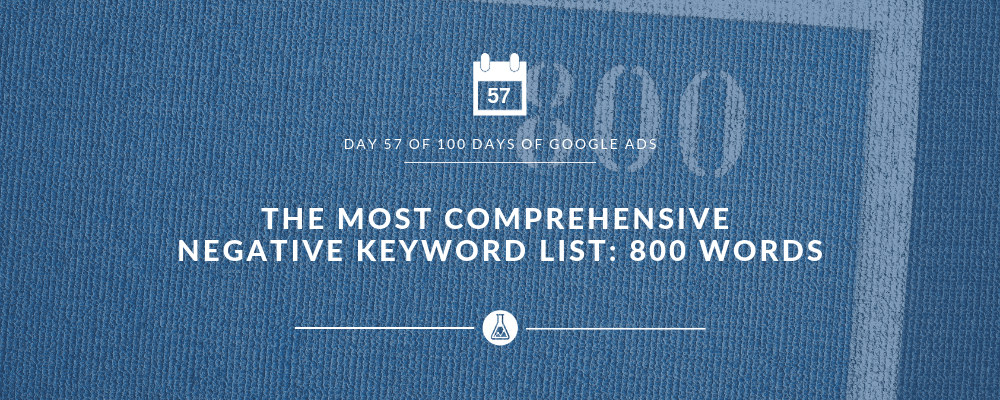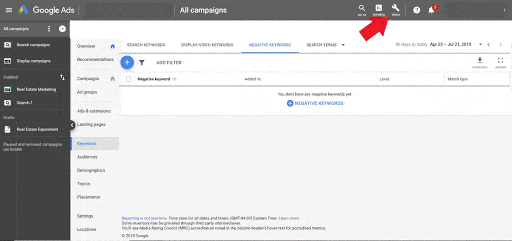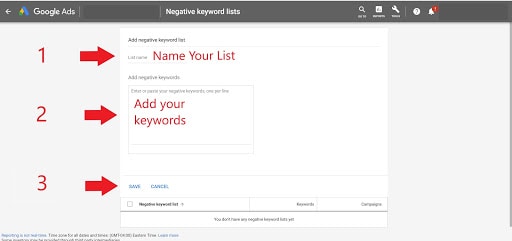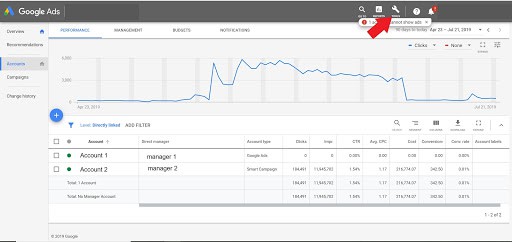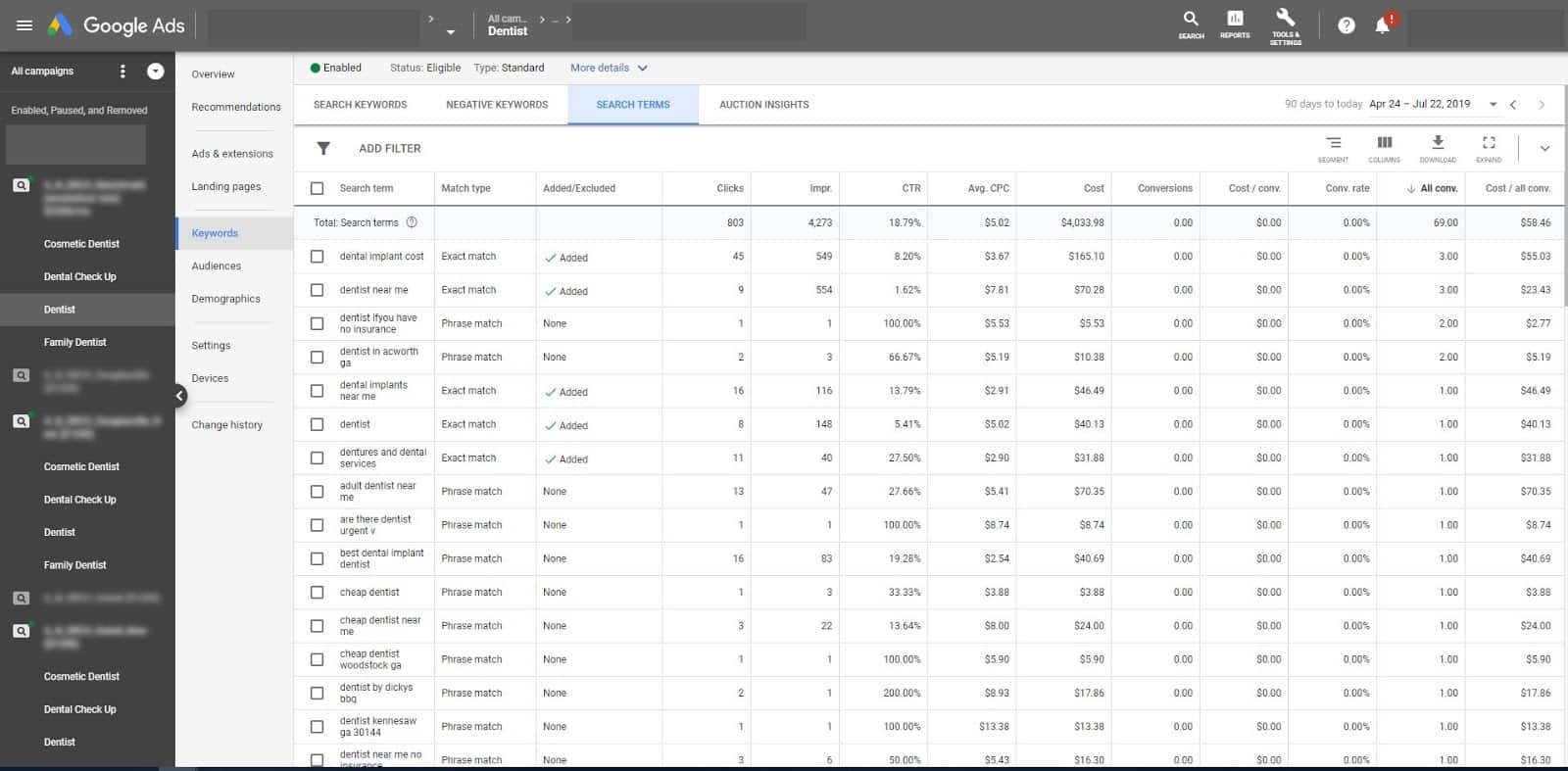What is more annoying: having to pay for extra guacamole or losing money because your ads appear for irrelevant searches?
All things tasty aside, there are just some search queries you never want your ads to appear for.
In a previous post on AdWords Editor vs Negative Keyword Lists we touched on Negative Keyword Lists, however, this article’s topic is another type of negative keyword called Universal Negative Keyword List. A perfect example of how this works in practice—especially for B2B campaigns—is the B2B Negative Keyword List, which helps filter out irrelevant traffic and keep your ads laser-focused on decision-makers.
You know, when you’re running multiple campaigns, especially in B2B, having a solid common keywords to block list is a lifesaver. I always start with a universal negative keyword list — stuff that just eats the budget without bringing qualified traffic. Then I refine it further into my blocked keywords list, depending on the industry and campaign type.
Some people underestimate how powerful a well-curated block keywords list can be. And for B2B in particular, you’ve got to go deeper — your B2B negative keyword list needs to filter out all the consumer-intent queries that just don’t convert.
Make sure to update your block keywords list before launching the next campaign — we’re still getting irrelevant traffic.
To improve PPC campaigns, generate a massive keyword list covering all variations.
In this article, we’ll discuss:
Why Create a Negative Keyword List?
There are some common keywords to block across all accounts.
Regardless of the platform you’re using, a negative keyword list is an excellent thing to have. Think about when you’re searching for a product or service you need. You might notice that there are times when an ad comes up that doesn’t really match the context of your query. That’s frustrating to the user and leads to clicks that are unlikely to result in a conversion.
A keyword block list will allow you to improve your conversion rate and reduce wasted spend. Your ads will appear for only the searches that make sense, and you’ll spend your budget more wisely. It’s a win for everyone!
By excluding irrelevant terms, such as ‘free,’ ‘cheap,’ or ‘DIY’ for a premium product, you ensure that your ads are seen by potential customers who are actually willing to pay for your services.
For instance, if you sell high-end kitchen appliances, you might want to block keywords like ‘budget’ or ‘discount’ to focus on attracting customers who value quality over cost.
WHAT ARE UNIVERSAL NEGATIVE KEYWORDS?
Ultimately, Universal Negative Keyword Lists are a permanent block list for your campaigns. By and large, there are just some search queries that will have a higher chance of not being relevant to most people’s campaigns.
While a regular negative keyword list lives in a single account, this fabulous list lives in your MCC account, where you can use it in as many accounts as you like. If you’re tired of adding negative keywords like “free” and “job” in every new account, then you’ll love this method of blocking wasteful keywords.
Some other great examples of keywords you’d probably like to block are: “2nd hand”, “career”, or “gambling”.
Here at Search Scientists, we want you to have the best campaigns possible. So in that spirit, we want to share a gift!
Here is an extensive list of Universal Negative Keywords that you will find useful. It contains 800 negative keywords that will very likely be irrelevant for your business.
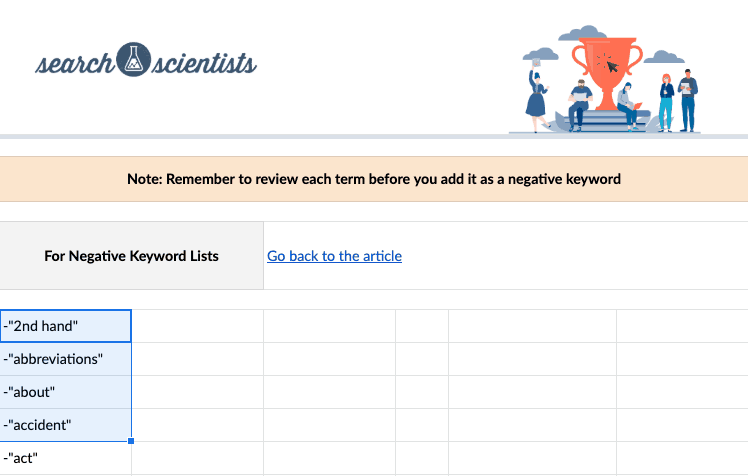
Make sure to look through the list and see if there are any keywords you may actually need. Once that’s done, go ahead and add it to your own Negative Keyword List.
Meanwhile, check out this video going more in depth on Universal Negative Keywords.
How to Create a Google Ads Negative Keyword List
Not sure where to get started? It’s okay, we’ll coach you through the easy process of creating your first list!
You can quickly create your list in the Google Ads UI. Unfortunately, you cannot currently add it via the Ads Editor. You’ll want to start with your list – having an Excel or Google Sheets document is really helpful for this part of the process. This will allow you to quickly copy and paste.
Generating an AdWords Negative Keywords List in the interface
Ready to make that list? It only takes a few minutes and saves tons of time in the long run. Start by going up to Tools and find the Shared Library column and click Negative Keyword Lists. Now click the blue plus button to make a new list.
Name your list and then copy your keywords from the spreadsheet. Doing it this way entails having the symbols for each match type around the keyword rather than having a match type column in the sheet.
Managing large keyword lists requires proper categorization and filtering.
When you’re finished adding your keywords, press save. Your keyword list is all set, but you’ll still have to add it to your campaigns.
Manager Level Negative Keyword List
You may be tempted to start your list under the Negative Keywords tab like you normally do, but that won’t allow you to share it. Instead, you’ll sign into your Manager Account and follow the same steps as the ones above.
Building Industry Specific Universal Negative Keyword Lists
Having a keyword block list for all accounts is a fantastic way to make sure nothing slips through the cracks. If you have a lot of industry-specific accounts, you may want to consider taking this one step further – universal negative lists by industry. Having a list for dentists or plumbers makes account building much easier.
It’s likely that searches come up that you’ll want to block in one industry but not another. Why not compile a list to combat searches that aren’t relevant to the type of business before they become a waste of spend?
The Importance of Identifying the Best Keywords to Block in PPC Campaigns
When running pay-per-click (PPC) campaigns, one of the most crucial optimization strategies is identifying the best keywords to block. Negative keywords help prevent your ads from showing up in irrelevant searches, saving your budget and improving ad performance.
Low-converting and overly broad search terms are among the best keywords to block since they tend to attract unqualified traffic. Analyzing past campaign data can reveal patterns of search queries that generate clicks but fail to convert. Regularly reviewing search queries and implementing negative keywords ensures that your ad spend is focused on high-intent audiences.
Additionally, competitive analysis can help in identifying the best keywords to block, as competitors might be targeting similar terms but with different intent. Blocking generic keywords that lead to low engagement or poor conversion rates helps refine your targeting strategy.
However, it’s essential to carefully research and test negative keywords, as blocking the wrong terms can limit your reach and affect potential opportunities. A well-maintained list of best keywords to block will enhance ad relevance, improve CTR, and ultimately increase return on investment (ROI).
Common Mistakes When Creating Negative Keyword Lists
While creating negative keyword lists can significantly improve your ad performance, there are common pitfalls to avoid.
Let’s explore some of the most frequent mistakes advertisers make and how to avoid them, ensuring your campaigns are as effective as possible.
Over-Blocking Relevant Keywords
One big mistake is being too aggressive with your negative keyword list. Over-blocking can happen when you add keywords that are too broad, which ends up filtering out potential customers.
For instance, if you’re selling high-end kitchen appliances, blocking the term “cheap” might make sense, but blocking “affordable” could exclude users looking for quality products within their budget.
How to avoid it? Be precise with your negative keywords. Use phrase match and exact match types to ensure you’re only blocking truly irrelevant searches.
Regularly review your search terms report to see if any valuable keywords are being blocked and adjust your list accordingly.
Updating your massive keyword list regularly ensures relevance in search results.
Failing to Update the List Regularly
Negative keyword lists aren’t something you can just set and forget. The landscape of search behavior and market trends changes over time. If you don’t update your list regularly, you might miss out on new irrelevant terms or, worse, continue to block keywords that have become relevant to your business.
How to avoid it? Schedule regular reviews of your negative keyword lists.
Monthly or quarterly audits of your search terms report can help you identify new negative keywords to add and ensure that previously added ones are still relevant.
Not Using Search Term Reports Effectively
A lot of advertisers don’t take full advantage of their search term reports when building their negative keyword lists.
These reports provide valuable insights into actual search queries that triggered your ads, which can help you identify irrelevant searches to block.
How to avoid it? Make it a routine to check your search term reports. Look for patterns in irrelevant searches and add those terms to your negative keyword list.
Ignoring Seasonal and Industry Trends
Some keywords may only become irrelevant during specific seasons or in certain contexts.
How to avoid it? Adjust your negative keyword lists based on seasonal and industry trends.
For example, if you’re in retail, keywords like “Christmas sale” might be relevant in November and December but irrelevant for the rest of the year.
Tailoring your negative keyword lists to these trends can optimize your ad spend.
Not Differentiating Between Campaigns
Applying a blanket negative keyword list across all campaigns might seem efficient, but it can lead to problems. Different campaigns may target different audiences with varied interests, and a universal list might block relevant searches for specific campaigns.
How to avoid it? Customize negative keyword lists for each campaign. Consider the unique goals and target audience of each campaign and tailor your lists accordingly. This targeted approach ensures each campaign performs optimally without unnecessary restrictions
Negative Keywords and Seasonal Campaigns
Seasonal campaigns often require a unique set of negative keywords.
First, consider the seasonal trends specific to your business. For instance, do you notice a surge in particular keywords during the holiday season? If you’re a retailer, you might see increased searches for gift-related terms in November and December.
Next, analyze data from previous seasonal campaigns. Have you reviewed your search terms report from last year’s holiday season? This can help you identify which keywords led to irrelevant clicks and should be excluded this time around.
For example, if you found that “free holiday recipes” brought in a lot of traffic but no conversions, it’s a good candidate for your negative keyword list.
When you’re running specific seasonal promotions, such as a Black Friday sale, think about the types of customers you want to attract. Are you promoting high-end products? If so, you might want to exclude keywords like “cheap” or “bargain” to avoid attracting price-sensitive shoppers. Instead, focus on keywords that align with the premium nature of your products.
Remember, consumer behavior can change from year to year.
We live, breathe & Dream Paid Traffic
Summary
Alright, so here’s the lowdown on negative keywords and why they’re a game-changer for your ad campaigns. Imagine paying extra for guacamole versus wasting money on ads that show up in totally irrelevant searches. Frustrating, right? That’s where negative keyword lists come in.
Analyzing large keyword lists can uncover gaps in your content strategy.
We’ve talked before about how handy these lists are, but let’s dive into Universal Negative Keyword Lists.
Creating and managing these lists in Google Ads is pretty straightforward, and they live in your MCC account, which means you can use them across multiple campaigns. This saves you tons of time and effort. Plus, you can tailor these lists for different seasons and industries. Got a Christmas sale coming up? Creating a comprehensive list of negative keywords helps refine PPC campaigns.
In a nutshell, using Universal Negative Keyword Lists helps keep your ads relevant, saves you money, and makes your campaigns way more effective. It’s all about getting your ads in front of the right people at the right time.

